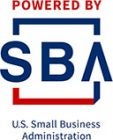If being an entrepreneur has been on your mind but you are unsure where to start, check out these articles which will help you with your business planning, financial decisions, market research, and everything in between. This can be overwhelming and daunting, but it doesn’t have to be. That is what we are here for!
Pricing, Market Research
Web Links:
Starting a Business (RI.gov): Rhode Island business links
Start Your Rhode Island Business
The Right Foot
Choosing Your Business Structure Example 1: Comprehensive information from the SBA on the types of business entities, including pros and cons of each.
Choose Your Business Structure Example 2: Solid advice from Entrepreneur on important considerations when choosing a business structure.
The Complete Guide to Registering Your Business Name
How to Test Your Business Idea: Eight step plan from Business Daily.
10 Questions to Ask Yourself When Testing a Business Idea
SBA Debuts New Market Research Tool For Small Businesses
Free Data for Market Research: Five official sources from the SBA.
URI Library Guide: Articles related to small business marketing and market research. For Client Use Only.
Calculator: What Are My New Business Start-Up Costs?
Business Start-Ups: Questions and exercises from the RISBDC to help assess your business idea.
Click on these links to learn how to develop a business plan:

Small Time Operator: How to Start Your Own Business, Keep Your Books, Pay Your Taxes, and Stay Out of Trouble — Bernard B. Kamoroff, CPA.Books:
The E-Myth Revisited: Why Most Small Businesses Don’t Work and What to Do About It — Michael E. Gerber
Pricing with Confidence: 10 Ways to Stop Leaving Money on the Table — Reed Holden and Mark Burton.
Following are several exercises and questions designed to assess your business idea. Included is a process to document the primary building blocks of a business. A meeting with a business counselor at different intervals could help you to plan and build your business.
The Big Idea – Self-Assessment
What is your primary aim in life and will your business help you fulfil that vision?
What core competencies will you bring to the business?
Are you missing any unique skills or resources that are vital to success?
What product/service are you proposing to offer?
What is the problem – what is the burning need that needs to be relieved?
Definition: Customer Segments are the group or groups of people and/or organizations that a business owner aims to reach and create value for with a defined value proposition.
Who are your customers?
Can you qualify the pain that your customers feel?
How will you make your customers’ lives better?
How is your product/service different than your competitors?
Exercise: Value Proposition Canvas: You need to tactfully match your value proposition with your customers’ needs in order to attract their attention.
Watch this four minute video and work out the defined concepts.
Who’s on your team and what technology do you have or need to sustain your business? The “team” can be defined broadly but it’s those people who will help you. They could include business partners, employees, suppliers, family members and others. At this point, getting feedback from some of these folks could be helpful.
You’ve done a lot of work up to this point. You may want to seek out one-on-one counseling to sort through the findings. OR, you could move on to the Business Model Canvas below. The Canvas addresses several important elements needed to plan your business.
Exercise: Business Model Canvas
Exercise: Business Model Canvas
Watch a You Tube video explaining the Business Model Canvas. While watching the video keep in mind the following notes:
Customer Segment: You’ve already worked on this element above
Value Proposition: You’ve already worked on this element above
Key Partners: Partners must be reliable, but always have a backup plan.
Channels: Customers will tell you which distribution methods are most convenient
Customer Relationships: Talk with the customers to ascertain their expectations.
Revenue Streams: Be proactive to determine what customers’ value.
Key Resources: What assets in the business are indispensable for creating value
Key Activities: Unique activities distinguish you from the competition.
Cost Structure: Be judicious with relationships while shopping for value.
The results of this Start-Up Process will lead to one of two conclusions. Either you will recognize the need to further develop the idea or it will strengthen your confidence about starting the business. If you want to move ahead contact a business counselor to schedule an appointment. A business counselor will work with you on market research, competition and developing financial projections.



